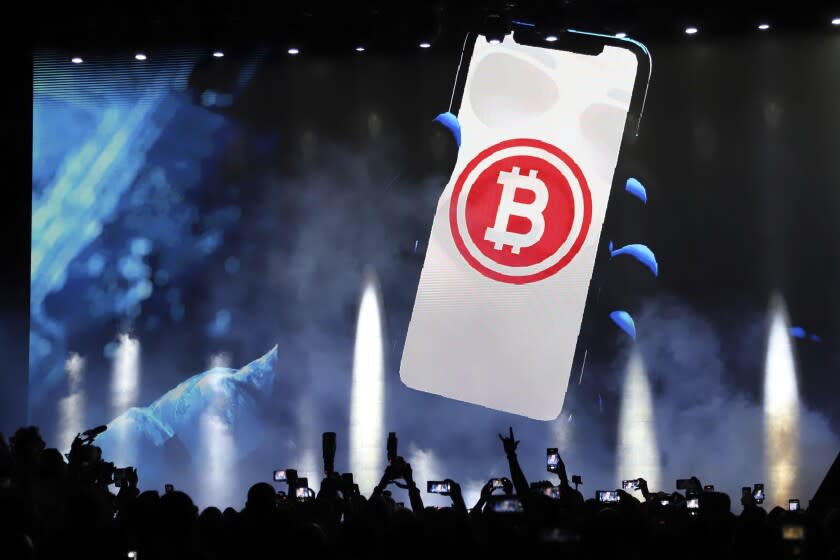El Salvador's president doubles down on bitcoin, buys $1.5 million more
- Oops!Something went wrong.Please try again later.

El Salvador’s bitcoin-boosting leader is back at it again.
On Thursday, President Nayib Bukele doubled down on his country’s losing investment in the cryptocurrency by buying over $1.5 million more.
Bukele wrote on his Twitter account after posting the purchase: “Bitcoin is the future! Thank you for selling cheap.”
Bukele said his government purchased 80 bitcoins at $19,000 apiece. That is less than half the average price the government paid for its previous $105.6-million stake.
According to the tracking site nayibtracker.com, starting in September, El Salvador has paid an average of almost $46,000 per coin, for a loss of 56%, or around $59 million.
In mid-June, after the cryptocurrency’s value fell below $20,000, Bukele wrote: “I see that some people are worried or anxious about the #Bitcoin market price.”
But he counseled patience. “My advice: stop looking at the graph and enjoy life. If you invested in #BTC your investment is safe and its value will immensely grow after the bear market,” he wrote. “Patience is the key.”
Bukele became the first leader in the world to make the cryptocurrency legal tender last year and was still a devoted booster in May, when he boasted of “buying the dip” in the currency’s price. But the coin has slid further in value since then.
Finance Minister Alejandro Zelaya said that because El Salvador hasn’t sold any of its bitcoins, it hasn’t really suffered any loss. However, most companies and governments write down the value of what accountants call an “unrealized loss,” even if they don’t sell the distressed asset.
Zelaya also insisted that the bitcoin slide didn’t matter very much for El Salvador, saying that its investment “doesn’t even represent 0.5% of our budget.”
That might prove a hard sell in a country where about one-fifth of the people live on less than $5.50 per day.
In January, El Salvador rejected a recommendation by the International Monetary Fund to drop bitcoin as legal tender.
The IMF recommended that El Salvador dissolve the $150-million trust fund it created when it made the cryptocurrency legal tender and return any of those unused funds to its treasury. The IMF cited concerns about the volatility of bitcoin prices and the possibility of criminals using the cryptocurrency.
Bukele has touted bitcoin as a way to significantly increase financial inclusion, drawing millions of people who previously lacked bank accounts into the financial system. He has also spoken of the parallel tourism promotion targeting bitcoin enthusiasts.
Bukele led the push to adopt bitcoin as legal tender alongside the U.S. dollar. El Salvador’s Legislative Assembly made the country the first to do so in June 2021.
This story originally appeared in Los Angeles Times.

